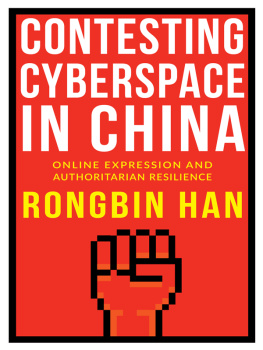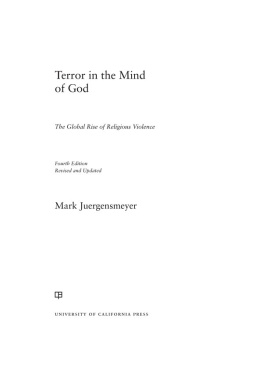Contents
Guide
Pages

The Expulsion of the Other
Society, Perception and Communication Today
Byung-Chul Han
Translated by Wieland Hoban
polity
First published in German as Die Austreibung des Anderen S. Fischer Verlag GmbH, Frankfurt am Main, 2016
This English edition Polity Press, 2018
Polity Press
65 Bridge Street
Cambridge CB2 1UR, UK
Polity Press
101 Station Landing
Suite 300
Medford, MA 02155, USA
All rights reserved. Except for the quotation of short passages for the purpose of criticism and review, no part of this publication may be reproduced, stored in a retrieval system or transmitted, in any form or by any means, electronic, mechanical, photocopying, recording or otherwise, without the prior permission of the publisher.
ISBN-13: 978-1-5095-2309-2
A catalogue record for this book is available from the British Library.
Library of Congress Cataloging-in-Publication Data
Names: Han, Byung-Chul, author.
Title: The expulsion of the other : society, perception and communication today / Byung-Chul Han.
Description: English edition. | Cambridge, UK : Medford, MA, USA : Polity Press, [2018] | Includes bibliographical references and index.
Identifiers: LCCN 2017033814 (print) | LCCN 2017036604 (ebook) | ISBN 9781509523092 (Epub) | ISBN 9781509523054 (hardback) | ISBN 9781509523061 (pbk.)
Subjects: LCSH: Fear--Social aspects. | Other (Philosophy)
Classification: LCC HM1071 (ebook) | LCC HM1071 .H36 2018 (print) | DDC
302/.17--dc23
LC record available at https://lccn.loc.gov/2017033814
The publisher has used its best endeavours to ensure that the URLs for external websites referred to in this book are correct and active at the time of going to press. However, the publisher has no responsibility for the websites and can make no guarantee that a site will remain live or that the content is or will remain appropriate.
Every effort has been made to trace all copyright holders, but if any have been inadvertently overlooked the publisher will be pleased to include any necessary credits in any subsequent reprint or edition.
For further information on Polity, visit our website: politybooks.com
The Terror of the Same
The time in which there was such a thing as the Other is over. The Other as a secret, the Other as a temptation, the Other as eros, the Other as desire, the Other as hell and the Other as pain disappear. The negativity of the Other now gives way to the positivity of the Same. The proliferation of the Same constitutes the pathological changes that afflict the social body. It is made sick not by denial and prohibition, but by over-communication and over-consumption; not by suppression and negation, but by permissiveness and affirmation. The pathological sign of our times is not repression but depression. Destructive pressure comes not from the Other but from within.
Depression as internal pressure develops autoaggressive traits. The depressive performance subject is as it were beaten down or suffocated by the self. Not only the violence of the Other is destructive; the expulsion of the Other sets in motion an entirely different process of destruction, namely that of self-destruction. In general, the dialectic of violence applies: a system that rejects the negativity of the Other develops self-destructive traits.
The violence of the Same is invisible because of its positivity. The proliferation of the Same presents itself as growth. At a certain point, however, production is no longer productive but destructive, information is no longer informative but deformative, and communication is no longer communicative but merely cumulative.
Today, perception itself takes the form of bingewatching. This refers to the consumption of videos and films without any temporal restrictions. The consumers are continuously offered those films and series that match their taste, and therefore please them. Like consumer livestock, they are fattened with ever-new sameness. Binge-watching can be generalized as the contemporary mode of perception. The proliferation of the Same resembles not a carcinoma but a coma, and does not meet with any immunological defences. One goggles oneself into unconsciousness.
The cause of an infection is the negativity of the Other, who infiltrates the Same and leads to the formation of antibodies. The infarction, on the other hand, comes from an excess of the Same, from the obesity of the system. It is not infectious but adipose. Fat creates no antibodies. No immunological defence can prevent the proliferation of the Same.
The negativity of the Other provides form and measure for the Selfsame; without it, the Same proliferates. The Selfsame is not identical to the Same; it always appears in tandem with the Other. The Same, by contrast, lacks a dialectical counterpart that can limit and form it, and thus proliferates into a formless mass. The Selfsame has a form, an inner collectedness, an inwardness that is due to its difference from the Other. The Same, however, is formless. As it lacks dialectical tension, it leads to an indifferent collection, a sprawling mass of indistinguishability.
We can only say the selfsame if we think difference. It is in the carrying out and settling of differences that the gathering nature of the selfsame comes to light. The selfsame banishes all zeal always to level what is different into the same. The selfsame gathers what is distinct into an original being-at-one. The same, on the contrary, disperses them into the dull unity of mere uniformity.
The terror of the Same affects all areas of life today. One travels everywhere, yet does not experience anything. One catches sight of everything, yet reaches no insight. One accumulates information and data, yet does not attain knowledge. One lusts after adventures and stimulation, but always remains the same. One accumulates online friends and followers, yet never encounters another person. Social media constitutes an absolute zero grade of the social.
Total interconnection and total communication by digital means does not facilitate encounters with Others. Rather, it serves to pass over those who are unfamiliar and other, and instead find those who are the same or like-minded, ensuring that our horizon of experience becomes ever narrower. It draws us into an endless ego loop, ultimately leading to an autopropaganda, indoctrinating us with our own ideas.
The negativity of the Other and of transformation is what constitutes experience in an emphatic sense. To have an experience of something means that this something befalls us, strikes us, comes over us, overwhelms and transforms us. Its essence is pain. The same, however, is not painful. Today, pain gives way to an online like, which continues the Same.
Information is simply available. Knowledge in an emphatic sense, however, is a long and slow process. It displays an entirely different temporality. It matures. Maturation is a temporality that we are increasingly losing today. It is not compatible with todays politics of time, which fragments time and eliminates temporally stable structures in order to increase efficiency and productivity.
Even the largest accumulation of information, Big Data, possesses very little knowledge. Big Data is used to find correlations. A correlation states: when A occurs, B often also occurs. It is not known, however, why this is so. Correlation is the most primitive form of knowledge, being not even capable of ascertaining the relationship between cause and effect.














